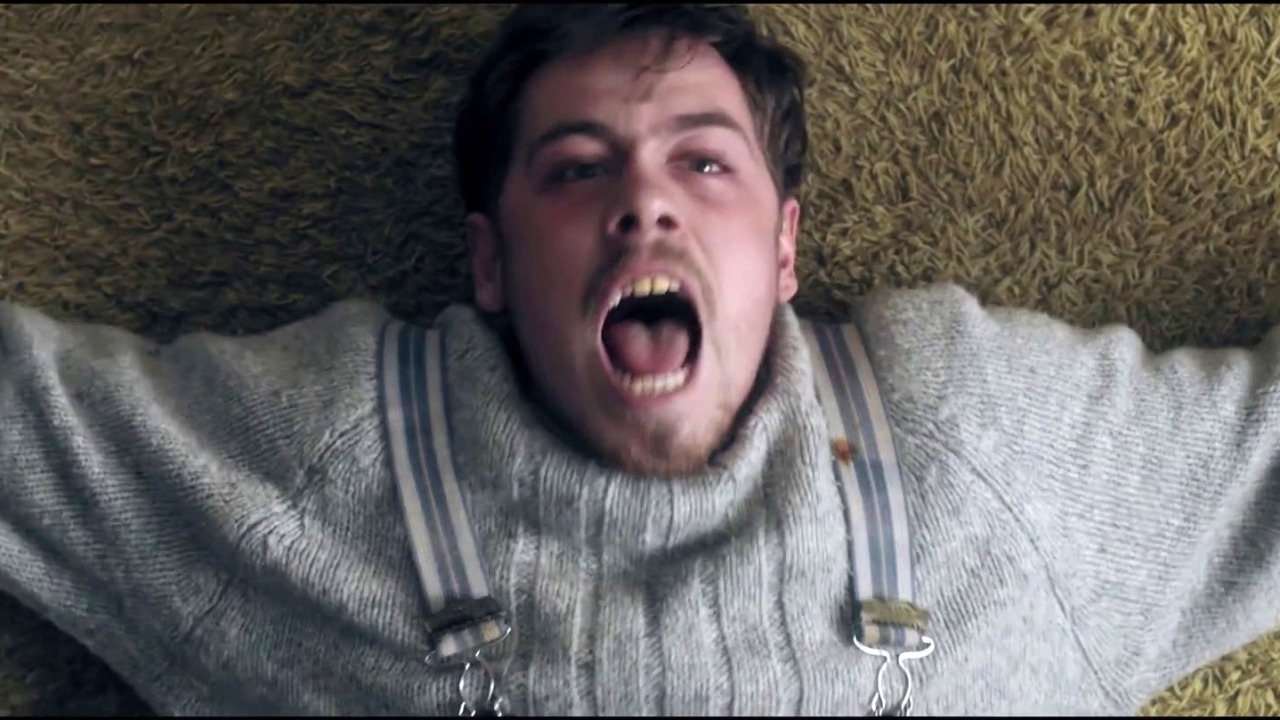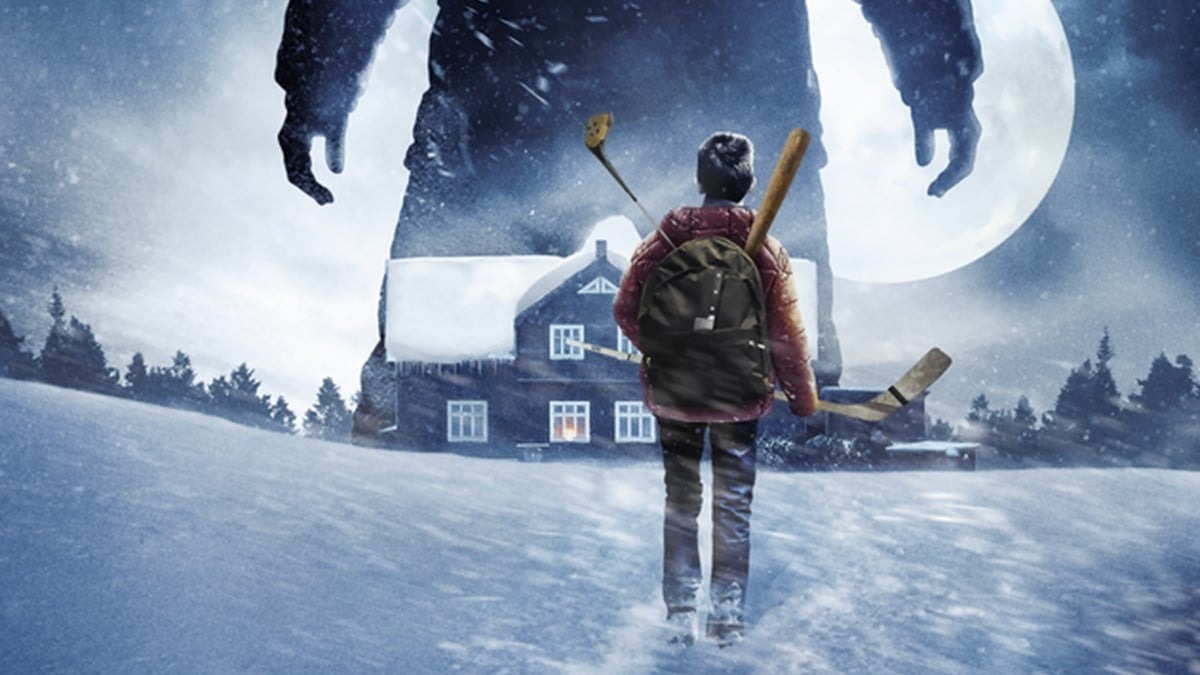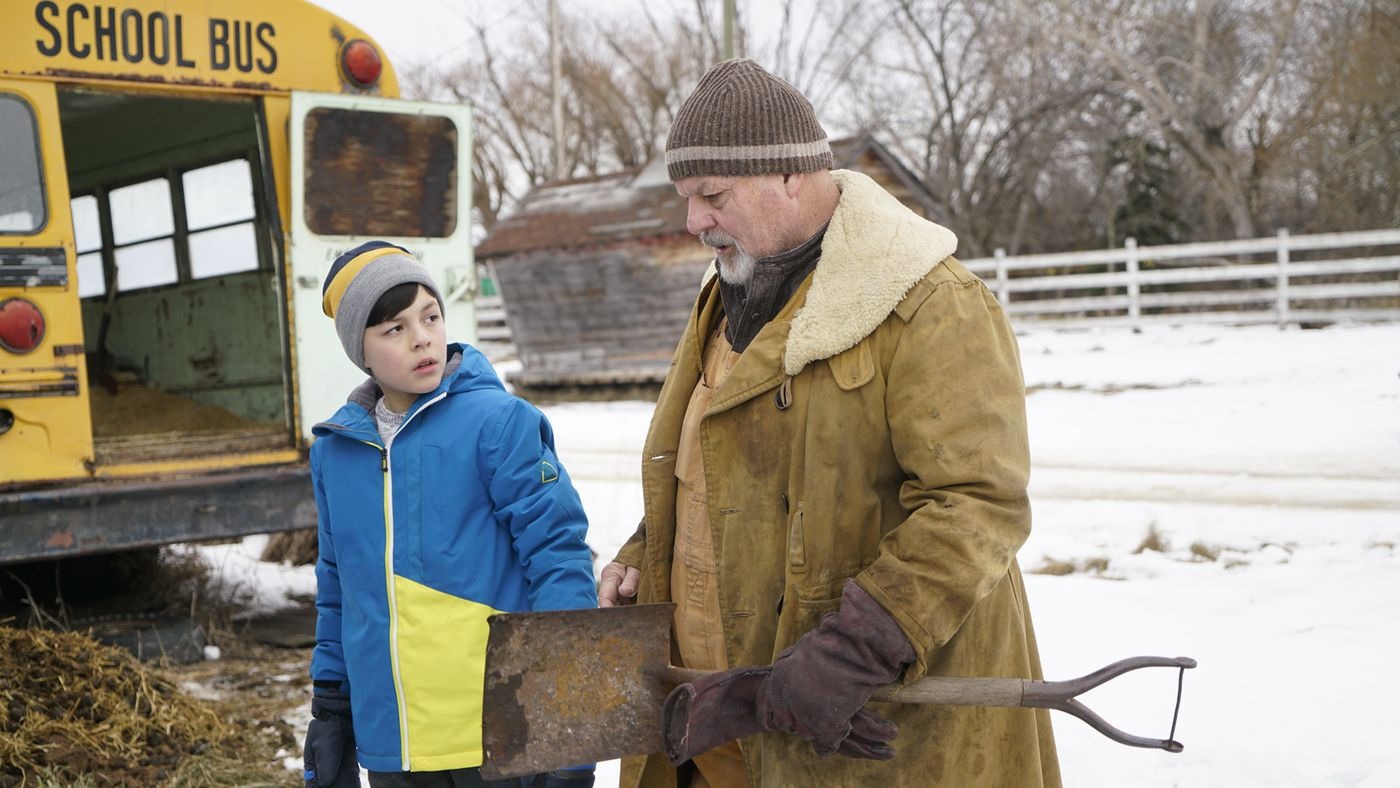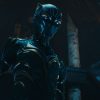Survival movies have their own unique appeal, especially in the harsh winter months when isolation and danger dominate the atmosphere. The tension heightens when young, vulnerable characters are forced to survive the odds.
Michael Peterson’s Knuckleball falls into this category, offering a chilling horror spin on the concept, similar to Home Alone but with much darker undertones. It’s raw, bloody, and shockingly entertaining, with a final act that turns everything upside down, leaving you questioning everything you thought you knew about the story.
Here’s everything you need to understand about Knuckleball: Who is the woman in the cage? Is Jacob really a villain? And what is Dixon’s personal vendetta against Henry?

Mary and Paul, a couple dealing with strained family relations, drop off their twelve-year-old son, Henry (Luca Villacis), at his grandfather Jacob’s (Michael Ironside) house for the weekend.
The visit is meant to be short since Mary and Paul must attend a funeral. Tension runs high between Mary and Jacob, but with few options available, they leave Henry there. However, things take a dark turn when Jacob dies unexpectedly overnight.
Left alone in a house with no landline and no phone charger, Henry finds himself in an increasingly dangerous situation. A snowstorm makes escape impossible, and Dixon (Munro Chambers), a suspicious neighbor, is all too eager to lend a hand.
The Mysterious Dixon: What’s His Grudge with Henry?
From the moment Henry is brought to Dixon’s house, it’s clear that something isn’t right. Dixon’s behaviour is erratic, and his hostility toward Henry is palpable. He refuses to let Henry use the phone, acts strangely, and is caught attempting to spike Henry’s drink with crushed pills.
As the tension escalates, it becomes evident that Dixon has more than a passing grudge against Henry. Subtle clues reveal that Dixon harbors deep resentment, and it’s not long before he becomes outright threatening.
Eventually, it is revealed that Dixon’s hatred for Henry stems from his troubled past with Jacob, Henry’s grandfather. Dixon is Henry’s step-uncle and was mistreated by Jacob throughout his childhood. Unlike Henry, who was loved and cared for, Dixon was neglected, abused, and kept in the shadows.
Uncovering the Darkness Behind Jacob’s Past
Jacob’s mistreatment of Dixon has far-reaching consequences. While Henry was adored as a grandson, Dixon was treated as a burden. Jacob may have even physically abused Dixon as a child, leaving him scarred and vengeful. Jacob’s need for control over his family pushed Dixon to the edge, turning him into an unstable and dangerous individual.
He resented Henry because he had everything Dixon never had—affection, attention, and respect. The deeper we look into Dixon’s backstory, the more we realize that his pursuit of Henry is rooted in years of deep-seated anger and rejection.
The Shocking Twist: A Caged Woman and the True Villain
Henry’s fight for survival becomes a brutal game of cat and mouse. Throughout the film, he faces numerous near-death encounters with Dixon, including setting him on fire and stabbing him. Meanwhile, Henry’s parents are concerned after hearing his distressing message and send a police officer to check on him.
Tragically, Dixon murders the officer with a baseball bat. As Henry continues to evade Dixon, he stumbles upon a shocking revelation—there is a woman locked in a cage.

This woman, who appears to have been held captive for years, helps Henry load a shotgun and shoot Dixon, but not before she is shot in the process. Henry narrowly escapes death with the woman’s assistance.
As it turns out, the true monster in Knuckleball is Jacob. While Dixon serves as the antagonist for most of the film, it’s revealed that Jacob’s actions set the stage for Dixon’s twisted hatred of Henry.
Jacob may have been a killer and possibly a rapist, responsible for capturing and holding women hostage, including Dixon’s mother. His dark secrets are exposed through the tragic tale of Mary’s mother, who may have committed suicide after discovering Jacob’s horrific crimes.
It’s hinted that Jacob’s violent tendencies may have led him to take many lives over the years, perhaps starting with Dixon’s mother, and this may have been a pattern of abuse that continued for decades.
The Ghost of Jacob: A Legacy of Violence
The final moments of Knuckleball leave a lasting impression, with Henry’s survival bringing more questions than answers. Both Henry and Dixon encounter the ghost of Jacob, though for different reasons.
Dixon sees Jacob as a symbol of the control he once had over him, while Henry’s encounter with Jacob’s ghost serves as a haunting reminder of the violence he had to escape.
Jacob, despite his death, continues to cast a shadow over Henry’s life, representing a legacy of abuse and terror that may never fully fade. Although Henry managed to survive Dixon’s attack, he may never be free of the scars left by his grandfather’s monstrous influence.
Knuckleball is available for streaming on Tubi, and its dark, twisted tale of family secrets, betrayal, and survival is sure to keep viewers on the edge of their seats.



